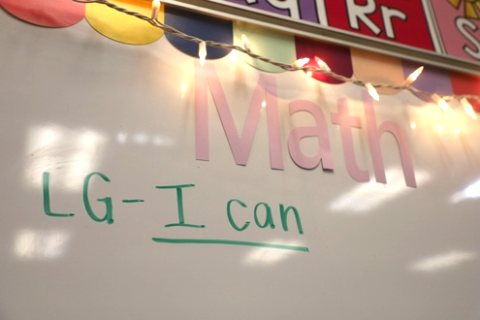Facilitator Resources
Building The Capacity Of Educators
Suites of resources on a range of early STEAM topics for facilitators and coaches to use in professional learning with educators.
Your math memories may bring up a variety of feelings, such as joy, curiosity, worry, or embarrassment. Perhaps you feel a combination of emotions. You might wonder where these feelings and thoughts come from and how they might relate to math learning.
In this module, you’ll explore these questions through the concept of math mindsets. Approaching math with a positive math mindset can promote impactful, meaningful learning for adults and children. Everyone can develop their math skills!
Reflect:
Take a moment to think about your earliest math memory. What feelings and thoughts come to mind? Use the My Journal to record your thoughts. Save your progress in the downloaded version.
As you observe your environment, you may notice aspects of geometry, algebra, measurement, and numbers. Math is likely a part of your everyday routines, for example:
The interactions you have with math in your everyday environments and routines can influence how you feel and think about math in general.
Reflect:
What are some ways you use math in your daily life?
When you are tasked with a math problem, what feelings and thoughts arise? You may feel excited and confident in your math skills, or you may feel uncertain or anxious. You might immediately know what to do, or you might wonder what to do first. These feelings and thoughts make up your math mindset.
Math mindsets are a combination of:
Observe this video of dad, Chet Kingston, discussing his feelings and thoughts about math. Notice how his math mindset changes.
Reflect:
What experiences might have helped change Chet’s math mindset?
Your math mindset can impact your interactions with other adults, like parents and teachers, as well as children. Research shows that adults’ math mindsets play an important role in children’s early math experiences.
When adults model positive words and actions about math, they can help spread the message that math is for everyone, regardless of gender, race, culture, ethnicity, ability, language, or socioeconomic status (Boaler, 2015).
Your math mindset is shaped by your environment and lived experiences. As a young child, you may have experienced math through daily routines and play or through math activities at home and school. You may have received messages—directly or indirectly—from others about how they feel and think about math.
Your early memories of math may include some or all of the following:
Reflect:
Think about a time when you felt like an “insider” or “outsider” in mathematics. What made you feel this way?
When people feel fear or experience increased physiological activity—such as increased heart rate or sweating—in situations involving math, they may be experiencing math anxiety (Luttenberger et al., 2018).
A 2019 study explored math anxiety among a large sample of English-speaking U.S. adults (Hart & Ganley, 2019). Most adults reported mild to moderate levels of math anxiety. Although these findings revealed several possible explanations, one key finding is that many of the study participants attributed their math anxiety to being exposed to a math-anxious parent or teacher (Maloney & Beilock, 2012). This finding sends a clear message: adults’ math mindsets matter!

Implicit biases are attitudes and beliefs that we form without consciously knowing we have formed them. These biases can affect math expectations, decisions, and interactions. They can also lead to behaviors that reinforce stereotypes.
Stereotypes are often based on biases about gender, race, culture, ethnicity, language, socioeconomic status, disability, and other factors.
Facilitators can combat negative math stereotypes by supporting educators to:
These behaviors can reinforce the idea that everyone can learn math and develop positive math mindsets.
Math ability is something we are either born with or not. Some groups of people are likely to be better or worse at math.
Everyone can develop their math skills and positive math mindsets. All children are born with the capacity to learn math (Chestnut et al., 2018).
Boys are better at math than girls are. This harmful stereotype can impact young children’s beliefs about their own math abilities. As a result, girls may feel less confident and be less successful.
Research shows that young boys and girls are equally capable in developing their math skills. A 2018 study examined gender differences on math tasks with children ages six months to eight years. They found no differences in how girls and boys performed on the math tasks at any age (Kersey et al., 2018).
Reflect:
Did these or other myths impact you in your childhood or professional practice?
Your feelings and thoughts about math are shaped by your lived experiences. As such, even adults’ math mindsets can change. New math experiences can shift the way you feel and think about math.
Considering your experiences and mindset as a professional learning facilitator can change how you engage others in their math learning. Reflecting on and recognizing ways your mindset can impact others will help you support others to develop positive math mindsets.
Here are some strategies for developing positive math mindsets:
Reflect:
Identify one strategy you can use to develop more positive feelings and thoughts about math.

Modules for leaders, professional learning facilitators, and coaches to build their knowledge and skills in how to provide early STEAM professional learning.
Suites of resources on a range of early STEAM topics for facilitators and coaches to use in professional learning with educators.
Copy the link below to share this resource with students, families and colleagues, or to save for later.